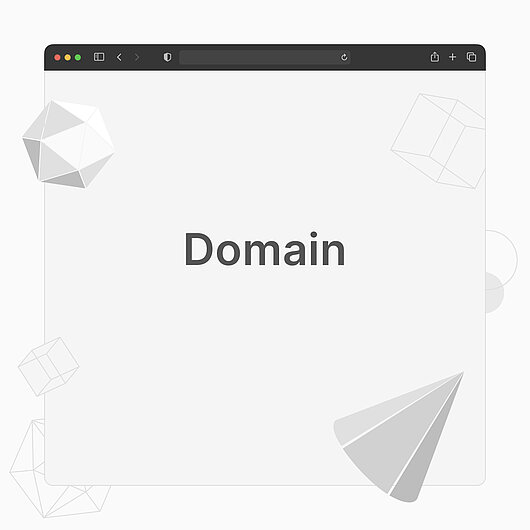- Why Us?
- Features
White Label
For SaaS Platforms & Agencies
Provide our complete analytics suite to your clients, directly within your own interface and with your/their own branding. Discover Analytics-as-a-Service and White Label Analytics. Great benefit, minimal effort.
- Pricing
- White Label
- Success Stories
- Partner
- ResourcesExpand Your Knowledge
Domain
TL;DR

A domain is a web address that users type in browsers in order to connect to a website. While websites refer to files and content, domains refer to the location on the web where to find that content. Domains can be rented for variable periods of time from registrars or re-sellers.
What is a Web Domain?
The definition of a domain is closely related to that of a website. A web domain is the address that internet users type into the browser when they want to directly access a website, without performing a search. If a website can be compared to a home with many rooms (web pages), then the domain is the address for that home. For example, the domain where you are reading this entry is visitor-analytics.io
In the early days of the internet, before the idea of using domain names, websites were accessible if users typed in the IP where the website files were being hosted. But since this was very difficult to remember, the idea of inserting a string of characters between the terminal of the user and that of the website came up.
Domains are controlled by registrars or by re-sellers across the web. An entrepreneur who would like to make his/her website public has to look for a registrar/re-seller and buy the right to associate his/her website to the domain. Depending on the type of domain, the costs and the billing intervals may vary. Most subscriptions are yearly, but website owners may choose to pay for more than one year at a time.
If you are using a web building platform, like Wix or Weebly, to create a website, that platform will initially offer you access to a free subdomain on their own domain. Subdomains have a structure such as this: your-domain.wix.com or your-domain.weebly.com. In most cases, the web building platforms offer the use of subdomains for free, with the option to upgrade to a desired domain name (if it is available). This means that these platforms also act as domain re-sellers. Be careful after you do the upgrade or whenever you change your domain name, as some services use the domain names for tracking. Therefore, you may need to reinstall some of the apps or copy the tracking code again.
What Are the Main Types of Web Domains?
Domains have extensions / suffixes / top level domains attached to them. These are often an indication of important information about the website location or other specifics. Here are some examples:
- .com - a global domain extension of general use
- .org - a top level domain used by organizations
- country top level domains: .de (Germany), .co.uk (UK), .ca (Canada) etc. If the target group of the website is limited to one country, this type of domain is recommended for SEO
- .biz - sometimes used for businesses
- .edu - this is often used by universities or other educational institutions

